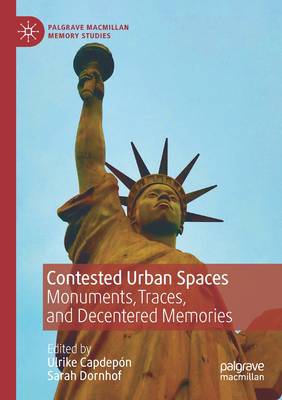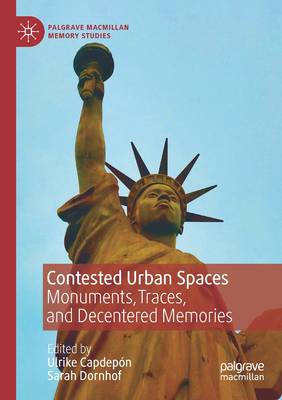
- Afhalen na 1 uur in een winkel met voorraad
- Gratis thuislevering in België vanaf € 30
- Ruim aanbod met 7 miljoen producten
- Afhalen na 1 uur in een winkel met voorraad
- Gratis thuislevering in België vanaf € 30
- Ruim aanbod met 7 miljoen producten
Zoeken
Contested Urban Spaces
Monuments, Traces, and Decentered Memories
€ 244,45
+ 488 punten
Omschrijving
This book takes the urban space as a starting point for thinking about practices, actors, narratives, and imaginations within articulations of memory. The social protests and mobilizations against colonial statues are examples of how past injustice and violence keep on shaping debates in the present. Following an interdisciplinary approach, the contributions to this book focus on the in/visibility and affective power of monuments and traces through political, activist, and artistic contestations in different geographical settings. They show that memories are shaped in contact zones, most often in conflict and within hierarchical social relations. The notion of decentered memory shifts the perspective to relationships between imperial centers and margins, remembrance and erasure, nationalistic tendencies and migration. This plurality of connections emerges around unfinished histories of violence and resistance that are reflected in monuments and traces.
Specificaties
Betrokkenen
- Uitgeverij:
Inhoud
- Aantal bladzijden:
- 304
- Taal:
- Engels
- Reeks:
Eigenschappen
- Productcode (EAN):
- 9783030875077
- Verschijningsdatum:
- 10/02/2023
- Uitvoering:
- Paperback
- Formaat:
- Trade paperback (VS)
- Afmetingen:
- 148 mm x 210 mm
- Gewicht:
- 385 g

Alleen bij Standaard Boekhandel
+ 488 punten op je klantenkaart van Standaard Boekhandel
Beoordelingen
We publiceren alleen reviews die voldoen aan de voorwaarden voor reviews. Bekijk onze voorwaarden voor reviews.







